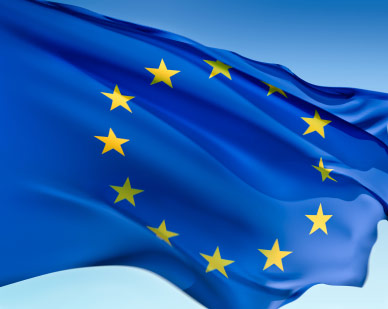 Headlines got duly grabbed by the non-binding vote in the European Parliament calling on the European Commission, currently still in a long-running anti-trust investigation against Google, to demand the separation of the search giant’s commercial businesses from its web search engines. The proposal was formulated by two MEPs, Andreas Schwab, from Germany’s conservative Christian Democrats, and Ramon Tremosa i Balcells, of Spain’s Convergència Democràtica de Catalunya, and passed by 384 votes to 174, but immediately ran into opposition from Guenther Oettinger, the EU’s digital economy commissioner, who declared that there would be “no breaking up of Google.”
Headlines got duly grabbed by the non-binding vote in the European Parliament calling on the European Commission, currently still in a long-running anti-trust investigation against Google, to demand the separation of the search giant’s commercial businesses from its web search engines. The proposal was formulated by two MEPs, Andreas Schwab, from Germany’s conservative Christian Democrats, and Ramon Tremosa i Balcells, of Spain’s Convergència Democràtica de Catalunya, and passed by 384 votes to 174, but immediately ran into opposition from Guenther Oettinger, the EU’s digital economy commissioner, who declared that there would be “no breaking up of Google.”
Special interests behind the parliamentarians’ initiative weren’t hard to find. German commentator Roland Tichy pointed out that Schwab, co-initiator of the proposal, is of counsel to German law firm CMS Hasche Sigle, which acts on behalf of German publishing interests in supporting anti-Google and pro-publishing initiatives. Tremosa, meanwhile, protested that: “European enterprises are losing revenues and people are getting fired.” Now, Tremosa may be right to speak out on behalf of his constituents – albeit while keeping silent on the others who are finding work or business opportunities through Google – but this seems like anything but a neutral and impartial argument over monopoly powers. Tichy says: “Ultimately, it’s about protectionism, the hope of eliminating pesky competition.”
U.S. diplomatic and business entities are not exactly taking this lying down. And they have found allies within Europe. The liberal-centrist Alliance of Liberals and Democrats for Europe in the European Parliament (ALDE), which voted against the resolution, issued an official release on the subject. “Parliament should not be engaging in anti-Google resolutions, inspired by a heavy lobby of Google competitors or by anti-free market ideology, but ensure fair competition and consumer choice,” it stated. “We are not supporters of monopolies or fans of excessive market power, but we want an integral approach to healthy competition on the internet.” And there’s little reason to doubt ALDE’s interpretation of the motives behind the vote.
The EU may have some legitimate concerns over competition in the search space, but European regulatory wheezes elsewhere hardly give much comfort that any further EU move against Google would benefit the online community as a whole. In the case of the controversial “right to be forgotten,” EU regulators appear eager to rival the U.S. in extraterritorial aggrandizement, seeking to extend pedophile politicians‘ rights to cover up their misdeeds and authors’ rights to nix bad reviews worldwide. And you do wonder whether the whole right-to-be-forgotten issue would have ever been raised if it had been a European search giant in the regulatory crosshairs.
Tichy’s conclusion? “The European Parliament has not yet grasped that Google is more important for the people than Europe.” Sounds like a message they should digest very soon, before they can cause any more trouble.































